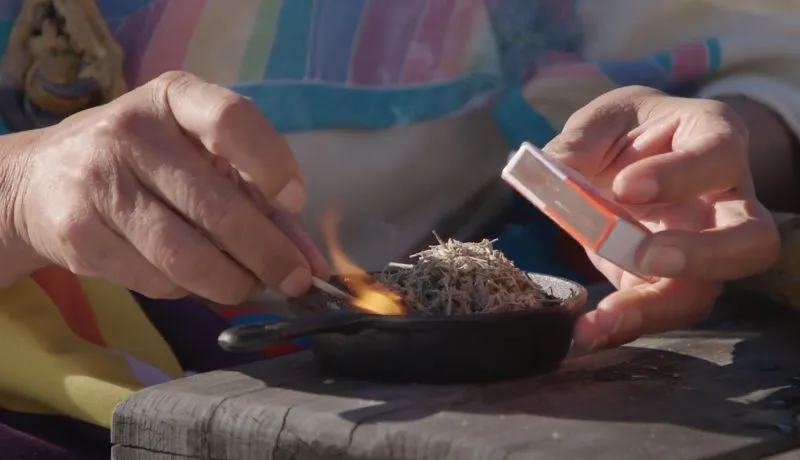5 minutes - Article
Keeping yourself free of addictions is one of the most important ways to make sure you are living a happy and healthy life.
By Elder Connie Forbister
Deaths caused by addictions are very common, and addiction can also lead to homelessness, and sometimes even a criminal record. Let’s look at what addiction is, why some people become addicted to drugs and alcohol, and what you can do to prevent this from happening to you.
What is addiction?
Addiction is a word used to describe an excessive use of substances, such as drugs or alcohol (sometimes even both). Addiction doesn’t always happen with drugs and alcohol. People can become addicted to eating, playing video games, or even exercising. Any activity, healthy or unhealthy, can become a problem if you can’t stop doing it. More often, though, when people talk about addiction, they are talking about alcohol, prescription and illegal drugs, and cigarettes. Other common addictions you might hear about include gambling, shopping, sex, relationships, using the Internet or your cell phone, and watching pornography.
How does addiction happen?
Addiction typically tends to happen when your body and mind begin to crave the “high” that they felt when you first experienced the object of your addiction. As you continue to seek this experience through using the substance or performing the behaviour, your body and mind both require more in order to continue to provide you with the good feelings that you experienced the first time. For example, people who are addicted to methamphetamines (meth) will often experience a high surge of energy and good feelings. However, over time, those people require more and more meth in order to keep up with the demand that their body and mind is placing on them.
Why is addiction a problem?
Addiction is a problem for many reasons. First, if your addiction is to something unhealthy, such as drugs or alcohol, the negative effects of each can cause more damage to your body and mind over time. This can lead to serious health problems, and even sometimes death. Second, addiction to even “healthy” substances or activities can be harmful, simply because they are done too often. For example, people who exercise too much, too often can experience heart attacks, muscle and joint problems, and may have a harder time keeping a steady weight than people who follow a healthy exercise regimen. Finally, people who are experiencing addictions may find themselves doing things they normally wouldn’t do or be okay with, simply because they want to continue to have access to the substance or activity they’re addicted to. For example, people who are experiencing addictions to hard drugs may steal money from friends or relatives, or even “mug” strangers on the street so that they can afford to continue feeding their addiction.
Why do people experiment with drugs and alcohol, knowing that it will likely lead to addiction?
There are many reasons why someone might choose to experiment with drugs or alcohol. Here are a few, and how you can avoid them:
They might be bored, and don’t have any interests that are healthy to occupy their time. If this sounds like you, try sitting down and making a list of things that you’re interested in. Then go out and do them! You can join an exercise group, dance and sing, join elder’s circle, volunteer your services to help others or get a part-time job to help you occupy your time. Ask someone to go to a 12-step meeting with you. Always feel that you have a right to ask for help.
They might be shy and have trouble making friends, and feel like doing drugs or drinking might make them seem “cool,” and will help them to fit in. If this sounds like you, then consider that, if you have to do drugs or drink to fit in with those friends, they might not be the kind of friends you want. Try making friends with people who are interested in healthy, non-drug or -alcohol related activities.
They might not understand why drugs and alcohol are bad, or feel like they “aren’t a big deal.” If this sounds like you, ask yourself what is the appeal of doing drugs or drinking. Ask yourself “What am I going to gain from this experience?
They might have been exposed to drug- and/or alcohol-related addiction during their childhoods. Their parents or caregivers may have abused substances, and may feel that it is normal. If this sounds like you, consider how your life may have been different if your parents or caregivers weren’t suffering from addiction. Ask yourself if that is the kind of life you would want your future children to have.
Finally, people mainly tend to use drugs or alcohol because they want to make themselves feel better when they’re feeling sad or angry, or because they are trying to not think about memories or thoughts that make them feel bad. If this sounds like you, try seeing a counsellor, social worker, an Elder or therapist to help you find ways to cope with negative feelings in a healthy way. There are many people and groups that are willing to guide you back to wellness.
Help is all around us
12 step programs include, Alcohol Anonymous, Narcotics Anonymous, Alanon, Alateen, Gamblers Anonymous, Over Eaters Anonymous, Emotions Anonymous, and more.
Professional help is available from Psychologists, Psychiatrists, Medical Doctors, Social Workers, Counsellors and Therapists.
Last but not least is our own Elders and Spiritual Elders. All you have to do is ask to see someone and they are there for you.
Respecting our culture is necessary for healing!
